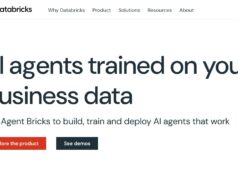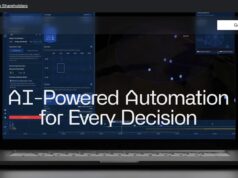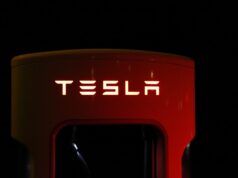1) AlphaGo is an artificial intelligence program developed by Alphabet’s Google DeepMind. It is the first program to defeat a professional player in Go, and it is also an artificial intelligence that completely changed the paradigm of Go when it appeared.
2) On March 15, 2016, the Korean Kiwon (Honorary) Pro Team Dan Certificate was awarded and became AlphaGo 9 Dan.
3) Since AlphaGo was registered with the Korea Kiwon as a player, AlphaGo can participate in competitions held by the Korea Kiwon at any time.
4) It was even ranked number one in the world Go Elo rating, but all records have been erased after the AlphaGo developer announced his resignation.
5) AlphaGo initially announced that it would use parallel computation using CPU and NVIDIA GPU as hardware. Of course, the most important thing is software rather than hardware. It is said that the win rate of 77% vs 23% in Go between AlphaGo and Single AlphaGo in parallel connection. The mere fact that each computer showed a win rate of 20% or more shows how well it is learning.
6) In the match against Panhui, AlphaGo used 1202 CPUs and 176 GPUs. In the match against Lee Se-dol in March 2016, 48 TPUs were used instead of GPUs. In the master version and zero version, it was greatly reduced and only 4 TPUs were used.
7) AlphaGo is a machine learning-based Go program developed by DeepMind, which was acquired by Google. As a result of in-house testing, it recorded 494 wins and 1 loss against other Go AI programs.
8) One of them was said to have been lost due to AlphaGo’s ‘mistake’, and the weakness had already been corrected, so it has reigned as the strongest artificial intelligence program in Go since it was first released.
9) Many people think that AlphaGo’s strength is the amount of computation based on its huge hardware. However, the biggest difference between AlphaGo and the existing Go program is the software algorithm, not the hardware. AlphaGo can also be run on a regular computer. Only 77% of the chances that AlphaGo, which has more than 1,000 CPUs, would beat AlphaGo running on a single computer, only with less energy than it is now.
10) When AlphaGo first appeared, little research was done on its ethos and weaknesses due to lack of information, but later, as other deep learning-based AIs were released, the weaknesses of AlphaGo were also discovered. The following disadvantages can be seen as common features of deep learning-based AI.
11) Suspicion and efforts to destroy existing Go theories, breaking away from stereotypes, and a full review of the entire human Go are underway. This is said to be the greatest gift AlphaGo gave to the human Go world.
12) AlphaGo played against Pan Hui on March 9th and 10th, 2016, against Lee Sedol, a Korean professional player. The match showed unprecedented interest in Korea at the time, and AlphaGo lost all of the 1st, 3rd and 5th countries, and the 4th country lost to Lee Sedol 9 Dan. Because one of the goals of this game was to find out AlphaGo’s weaknesses and further develop artificial intelligence, unlike general professional Go, all five countries were placed regardless of the match.
13) Google DeepMind CEO Hassabis said at the closing press conference of the ‘Future Go Forum’, “This event is the last Go game AlphaGo participates in.”#. Their official record is 12 wins and 1 loss in a total of 13 matches. A total of 74 matches, 73 wins and 1 loss, based on the game that left the notation. Later, he revealed that AlphaGo could be released for educational purposes.
14) AlphaGo is designed to work in a mixture of three different AI structures: Also refer to AlphaGo’s matchmaking mechanism. another cleanup
Value Network: Score your odds of winning the current phase. Value function role in general reinforcement learning. It is a Deep Convolutional Neural Network. Since it is a matrix operation without a search process, the result is obtained in an instant (less than 0.1 seconds).
Policy Network: Recognizes the checkerboard and intuitively draws a score for each location to know where to place it. It is also a Deep Convolutional Neural Network, and the results are instantaneous.
Monte Carlo Tree Search (MCTS): Artificial intelligence that counts the number of different cases. It’s the longest part if given enough time to get started, but conversely, there’s little room for optimization. The decisive difference from general MCTS is that, using a trained policy network, an intuitive number is first considered and then the value is calculated using a value network.
There are various versions of AlphaGo inside Google DeepMind. There is a version that uses only one or two of the above three, a version that runs on one machine, a version for the cloud, and a version with a different kernel of the neural network. The version used before the release was the cloud version in which all three were written, and the Elo rating was estimated to be 3140 points in the paper. The version 18, distributed processing version, was used in the match against Lee Sedol, and the Elo rating of this version was counted at 3586 points (2nd place in the world). First of all, this rating is an estimate based on only the win and loss of the 5th season against Lee Se-dol, so it is unreasonable to think that it reflects all actual skills.
15) Unlike the existing Go programs, it is characterized by less special processing according to the rules of Go or the notation DB, and Google believes that it can be used to solve difficult problems in specialized fields other than Go. Specifically, it will excel in weather forecasting and interpretation of diseases.
16) At a press briefing, Dr. Demis Hassabis once said, “Although there are weaknesses of AlphaGo that DeepMind is grasping internally, it is difficult to tell before the match against Lee Sedol 9 dan.” Afterwards, he said that AlphaGo’s shortcomings were revealed in the second match. In this regard, AI-related majors pointed out what appears to be AlphaGo’s weakness (loophole) based on the contents of the second match, etc. In the end, in the 4th match, Sedol Lee succeeded in winning by stabbing AlphaGo’s weakness.
17) After the game, many people praised AlphaGo, but UC Berkeley professor Stuart Russell said that it was a bit disappointing from an AI point of view because the way AlphaGo operated the game was almost the same as when Deep Blue played chess in the past.
18) Contrary to concerns that the future of Go players will collapse and the popularity of Go will fade with the advent of AlphaGo, over 300 million people from all over the world watched the match against Lee Se-dol, and the sales of Go board increased tenfold after the match. increased over. In addition, AlphaGo is acting as a catalyst for researching new notations by setting a number that is completely different from the notations of Go knights that have been fixed in the past.
19) Interest in amateurs has increased, but professional sponsorships are disappearing as time goes by. Due to AlphaGo, interest in human Go has dropped, and fatal blows are gradually occurring before the professional Go game, which has disappeared one by one.
20) According to the pros who reviewed the Go game between Seong-ryong Kim and Sedol Lee of AlphaGo, it was actually 9-dan, and it was the highest level. It was obvious in that AlphaGo won the world’s top knight, Sedol Lee. In terms of hardware, 48 TPUs are used, unlike the previous version that used GPUs.











